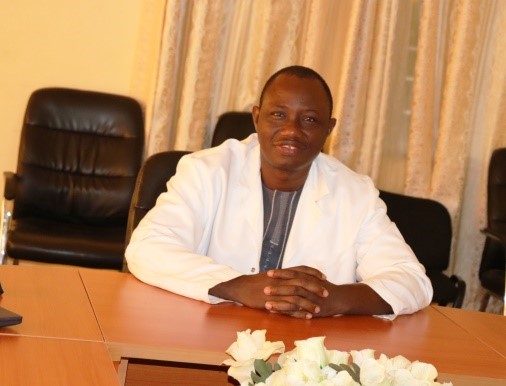World Sight Day (WSD) is observed annually on the second Thursday of October by countries of the world. It is a global event meant to draw attention on blindness and vision impairment. It was originally initiated by the Sight First Campaign of Lions Club International Foundation in 2000.
The Day has since been integrated into VISION 2020 and is coordinated by International Agency for the Prevention of Blindness (IAPB) in cooperation with the World Health Organization (WHO).
Since then the World Health Organization (WHO) and International Agency for the Prevention of Blindness (IAPB) are actively involved in coordinating events and activities for World Sight Day.
Also associations such as Lion Clubs International have also been actively involved in promoting the Day on an annual basis for many years.
Many communities, associations, and non-government organizations continue to work together with WHO and IAPB to promote the Day for the following purposes.
That is, to raise public awareness of blindness and vision impairment as major international public health issues, to influence governments, particularly health minsters, to participate in and designate funds for national blindness prevention programs and to educate target audiences about blindness prevention, about VISSIO 2020 and its activities, and to generate support for VISION 2020 program activities.
Where in Liberia, this year’s observance of World Sight Day passed off with momentum from eye health workers without an appropriate indoor program taken place which should have been executed by the Government of Liberia through the Health Ministry, with the involvement of local and international organizations which focused are on eye healthcare services. On Thursday, October 13 the Day was celebrated by conducting free eye screening New Kru Town through the initiative of the National Eye Health Program.
But one of Liberia’s premium eye healthcare institutions, the New Sight Eye Center (NSEC), Executive Director, Robert F. Dolo, is calling for more trained, qualified and professionals in the eye healthcare sector of the country.
Mr. Dolo said Liberia is amongst countries in West Africa that is struggling when it comes to practitioners in eye healthcare sector, which is troubling as many Liberians continue to develop various eye problems that are leading them blindness.
“There is a wide gap in the numbers of people in Liberia mainly in rural areas to have access to eye doctors because the number of professionals are very low, something that do not augur well for country which people with eye diseases are increasing daily”, the NSEC Founder revealed.
Speaking Saturday, days after the observance of the Day, Mr. Dolo appealed to the Liberian Government and partners to support the eye healthcare sector by training more Liberians and have them equipped to assign them at various health facilities across the country.
He said to bridge that gap; the New Sight Eye Center has over the years graduated numbers of people from its owned Post Basic Ophthalmic Training Program. Referencing the fifth 5th graduation exercise last month, he pointed out that over 40 ophthalmic nurses and 25 optometry technicians had been trained and added to the over 100 eye healthcare practitioners in Liberia.
He disclosed that with financial, logistics and equipment from partners and working together with the Health Ministry, New Sight Eye Center (NSEC) was able to extend its eye healthcare services from Monrovia to rural and the rest of the counties.
NSEC Founder Stated: “Eye conditions affect people at all stages of life. However, young children and older people are the most vulnerable. Women, rural populations and ethnic minority groups are more likely than other groups to have vision impairment and are less likely to access care”.
He disclosed that globally, WHO Member States have adopted two targets for eye care by 2030; firstly, a 40 percent increase in effective coverage of refractive errors; and secondly a 30 percent increase in effective coverage of cataract surgery.
Mr. Dolo said besides a new WHO report released this week shows that the median relative quality gap between ‘coverage’ and ‘effective coverage’ globally is 33.9 percent for cataract and 7.3 percent for refractive error, highlighting the need to not only increase coverage but also quality.
Latest WHO Report
Globally, at least 2.2 billion people have a vision impairment or blindness.
At least 1 billion cases of vision impairment could have been prevented or are yet to be addressed.
Nearly 30 percent of the world’s blind and vision-impaired live in the South-East Asia Region.
He added that Liberia is still having a huge challenge towards addressing the eye health needs some of which include, human resource development as was mentioned early, infrastructural development, appropriate equipment and technology reaching routine eye health services to those deprived and lock of budgetary allocation towards the support of eye health.
In the mist of these challenges New Sight Eye Center is buttressing government effort towards expanding eye health services in rural Liberia as evidence by the Liberia Government Hospital Eye Center in Buchanan Grand Bassa County and the Jackson F. Dolo Memorial Regional Referral Eye Center, in Nimba County. He noted that work is ongoing towards the establishment of a modern eye center in Gbarnga, Bong County.
Mr. Dolo extolled Samaritan Purse International – Liberia, the Liberian Government through the Health Ministry, Segal Family Foundation – USA, Rotary Clubs of Liberia, Lions Clubs of Liberia and PAMODZI for collaborating with NSEC is addressing the eye health needs of the population.




